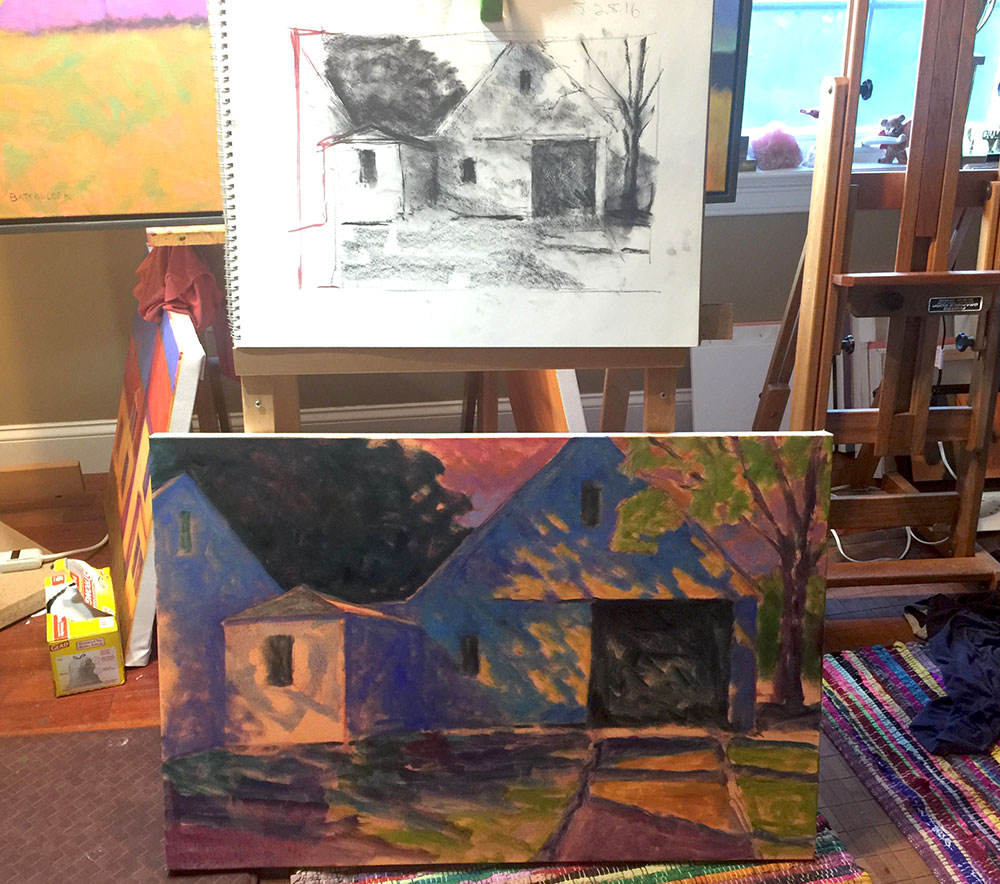Thursday, September 29th, 2016
Composition vs Subject Matter

Years ago, while taking a “literary journalism” course at Boston University, the instructor talked about the book “House” by Tracy Kidder, a writer I admired for how he handled non-fiction storytelling in a way that read like fiction. In the book, Kidder lead readers through the construction of a house…a subject that could have easily resulted in a DIY-sounding how-to guide, like those you find at Home Depot. Instead, it was visual, gripping, and left you wanting to find out more as the story unfolded.
The instructor pointed out that it wasn’t the subject (house building) that made the book great, but how the author composed it…that it was the choices Kidder made during the writing process to leave things out, add other things, and to exaggerate or minimize details.
Whether composing prose or a painting, the distinction between subject matter and decisions made in the composing of the work are what makes it unique. In the sketch above, a scene I’m very familiar with in East Dennis (Cape Cod), was composed to focus on the light, more so than the structure itself. There are elements in the composition that will be taken out (the background tree and driveway), as they (I feel) don’t contribute to the “story.” In creating anything, it’s the editing (the unseen decisions made while composing) that ultimately turn the subject into art.
